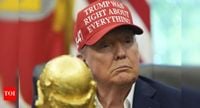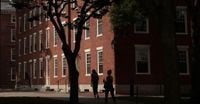On a brisk October evening in upstate New York, former president Barack Obama stood before a packed auditorium at Hamilton College, his words carrying a palpable urgency. "It is up to all of us to fix this," he declared, urging universities and law firms to resist what he described as mounting intimidation from President Donald Trump's administration. The speech, delivered on October 2, 2025, was a clarion call for Americans to brace themselves for "possibly sacrifice" in defense of democratic values—a warning that reverberated far beyond the campus.
Obama’s concerns come amid a sweeping overhaul of higher education policy under Trump’s second term, a campaign that, according to The Times of India, has blurred the boundaries between public policy and personal vendetta. The administration’s focus: rooting out what it labels as "radicalism" and "woke agendas" on campuses, targeting everything from diversity programs to student protests and admissions policies. Universities—once bastions of open debate—have become battlegrounds in a broader culture war.
Federal agencies, including the National Institutes of Health, Department of Defense, and NASA, have frozen or slashed billions in research grants in response to disputes over diversity initiatives and student activism. Columbia University, for example, saw $400 million in funding withheld after pro-Palestinian demonstrations drew federal scrutiny. Although most grants were later restored after a settlement, the university did not admit any wrongdoing. Harvard faced even harsher measures: a $2.2 billion freeze in federal grants, civil rights investigations, threats to its tax-exempt status, and a temporary ban on foreign students. A federal judge ultimately blocked further interference, branding the administration’s actions as "ideologically motivated." Similar funding disputes have roiled Cornell, Northwestern, the University of Pennsylvania, and Princeton.
In his Hamilton College speech, Obama lamented the erosion of postwar norms—free speech, an independent judiciary, and mutual respect—that had long underpinned American politics. He accused the Trump administration of undermining the international order forged after World War II and expressed particular alarm over federal threats to universities whose students exercised their right to protest. "If you are a university, you may have to figure out, are we in fact doing things right? Have we in fact violated our own values, our own code, violated the law in some fashion? If not, and you’re just being intimidated, well, you should be able to say, that’s why we got this big endowment," Obama said, as reported by The Washington Post.
Yet the administration’s campaign extends far beyond funding. Trump has signed an executive order directing Education Secretary Linda McMahon to begin closing the Department of Education, aiming to return authority to states and local communities. Accreditation, once a technical process, is now wielded as a tool to enforce ideological conformity, with universities pressured to switch accreditors and comply with new federal mandates. Investigations by the Office for Civil Rights have flagged institutions for alleged violations, threatening their eligibility for federal aid.
International students have not been spared. The Trump administration has revoked visas, deported, or attempted to deport students and scholars—especially those involved in pro-Palestinian advocacy—who lack U.S. citizenship. While some of these efforts have been blocked by courts, the message is clear: dissent may come at a steep personal cost.
Student loans and research funding have become additional battlegrounds. The administration has restricted eligibility for Public Service Loan Forgiveness, resumed collections on defaulted loans, and imposed lifetime borrowing caps. Grants for research on climate change, environmental justice, and diversity initiatives have been rescinded, with those funds redirected to projects deemed "ideologically neutral."
Perhaps the most controversial move is the administration’s push to dismantle diversity, equity, and inclusion (DEI) programs. Universities now face the threat of losing federal support if they consider race, gender, or other demographic factors in admissions, hiring, or financial aid. Investigations into schools like George Mason University and the University of Virginia have forced leaders to resign or overhaul policies, sending a chilling message to academic communities nationwide.
This campaign reached a new crescendo with the introduction of the "Compact for Academic Excellence in Higher Education." Sent to nine major universities—including the University of Southern California (USC)—the compact offers substantial federal incentives in exchange for sweeping policy changes: adopting the administration’s gender definitions, eliminating race or gender from admissions, enforcing standardized testing, and upholding a strict code of "civility." As Los Angeles Times columnist Anita Chabria noted, the agreement is "voluntary" but carries a menacing caveat—institutions that refuse risk losing federal funding entirely.
California Governor Gavin Newsom responded swiftly, warning that any state college complying with the compact would face cuts in state funding. "The Golden State will not bankroll schools that sell out their students, professors, researchers, and surrender academic freedom," Newsom declared on social media. While some universities, like the University of Texas, have welcomed the compact as an "honor," critics have dubbed it a "Faustian bargain," arguing that it institutionalizes political control over academia and threatens the very foundations of free inquiry.
These developments have drawn historical comparisons to earlier battles for academic freedom. Bettina Aptheker, a veteran of the 1960s Free Speech Movement at UC Berkeley, sees echoes of McCarthy-era repression in today’s climate. "It was a different time period, but it feels very similar to the kind of repression that’s going on now," she told the Los Angeles Times. Aptheker, now 81, worries that the compact’s requirements for "civility" could be wielded to suppress legitimate dissent and punish professors who challenge conservative orthodoxy. "No university should make any kind of deal with him [Trump]," she said, warning that the pact could roll back decades of progress in academic freedom and inclusion.
The administration’s defenders argue that the reforms are necessary to restore ideological balance and curb what they see as left-wing dominance on campuses. They point to skyrocketing tuition costs and what they describe as the stifling of conservative viewpoints as evidence that drastic measures are needed. The compact’s demand to freeze tuition for five years, for instance, has found support among parents struggling with college expenses. Yet opponents counter that such measures come at the expense of free expression, academic independence, and the pursuit of truth.
Obama’s speech concluded with a call for resilience and respect for diversity. "I know that these days, the idea of inclusion has somehow been deemed illegal, but you know what? I believe in it," he said. As universities weigh the risks of resistance against the costs of compliance, the future of American higher education hangs in the balance—caught between political pressure, financial imperatives, and the enduring struggle for open inquiry.
In a moment when the stakes for academic freedom have rarely been higher, the choices made by universities, lawmakers, and citizens alike will shape not only the landscape of higher education, but the very fabric of American democracy itself.


